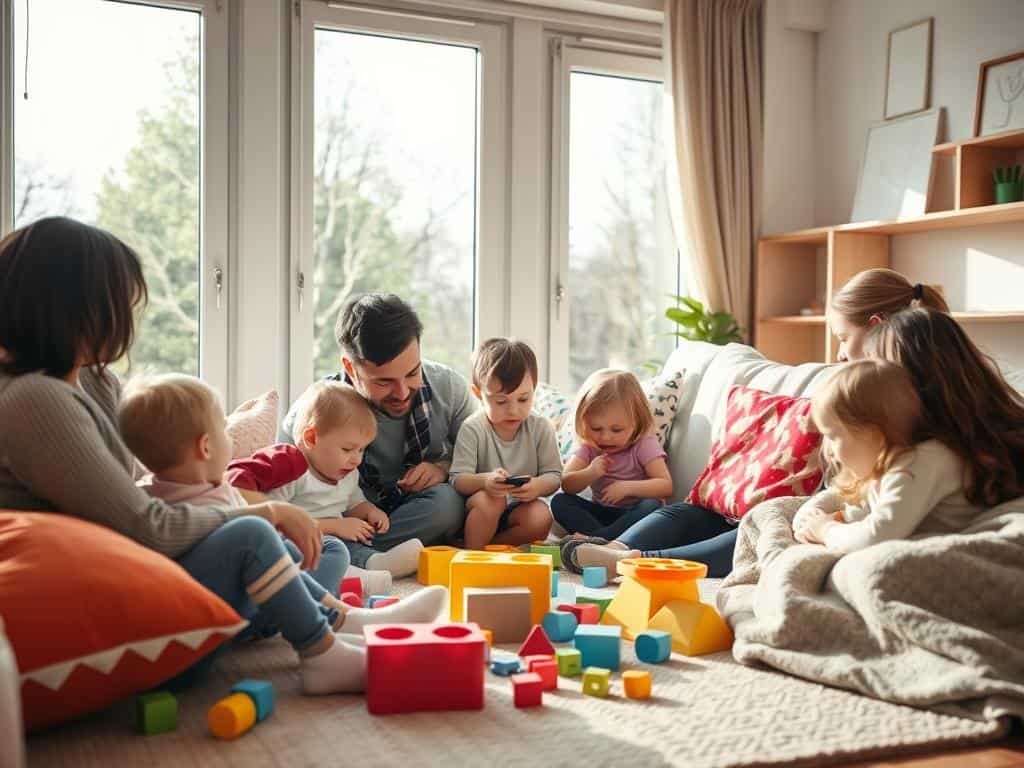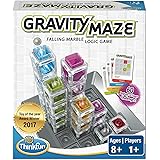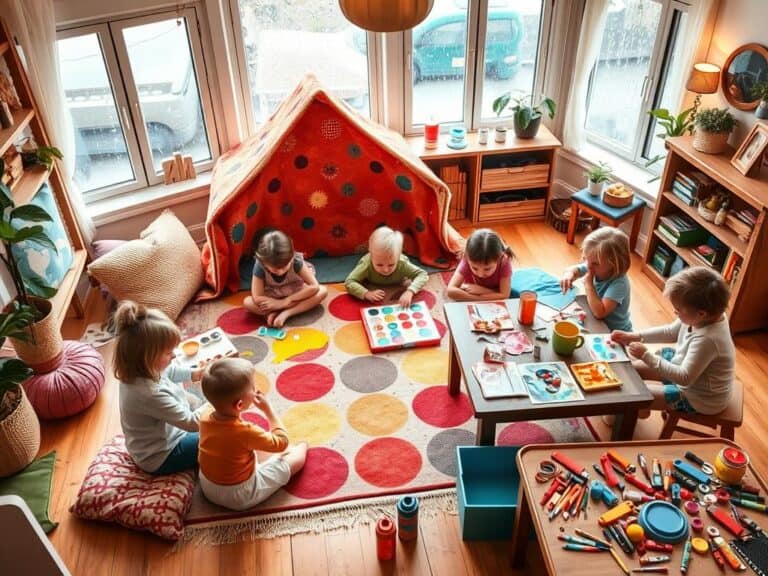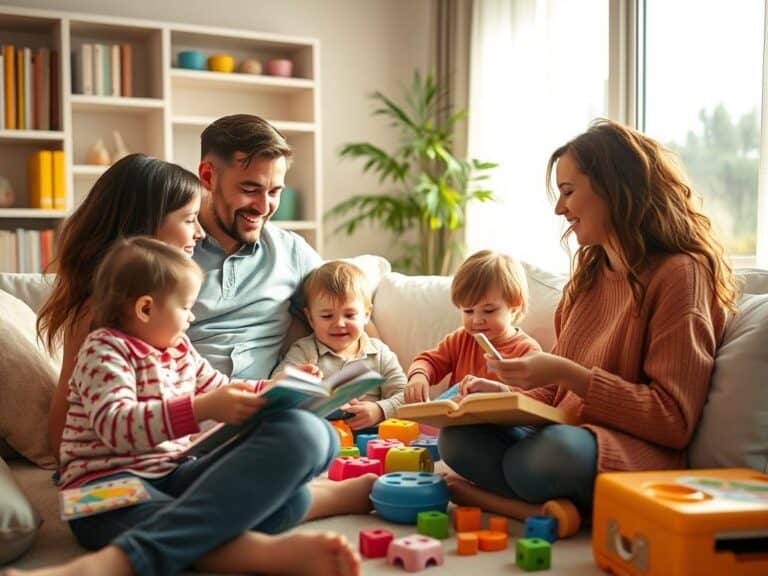10 Gentle Parenting Techniques to Transform Your Family Dynamics
Schylling NeeDoh Nice Cube -Sensory Squeeze Toy with Super Solid Squish - 2.25" Cube
$9.99 (as of December 1, 2025 15:32 GMT +00:00 - More infoProduct prices and availability are accurate as of the date/time indicated and are subject to change. Any price and availability information displayed on [relevant Amazon Site(s), as applicable] at the time of purchase will apply to the purchase of this product.)Taco Cat Goat Cheese Pizza Wildly Entertaining Card Game for Family and Group Game Night | Easy to Learn and Play with 10-15 Minute Rounds | Fun for Kids, Teens, Adults, and Families | 2-8 Players
$7.48 (as of December 1, 2025 15:32 GMT +00:00 - More infoProduct prices and availability are accurate as of the date/time indicated and are subject to change. Any price and availability information displayed on [relevant Amazon Site(s), as applicable] at the time of purchase will apply to the purchase of this product.)ThinkFun Gravity Maze - Falling Marble Logic Game - Challenging STEM Toy for Kids 8-12 - Gravity Marble Maze - Brain-Building Fun - Educational Gift - Boosts Critical Thinking & Problem Solving
$18.39 (as of December 1, 2025 15:32 GMT +00:00 - More infoProduct prices and availability are accurate as of the date/time indicated and are subject to change. Any price and availability information displayed on [relevant Amazon Site(s), as applicable] at the time of purchase will apply to the purchase of this product.)This post may contain affiliate links which means I may receive a commission for purchases made through links at no extra cost to you. I only recommend products I truly believe in. Thank you for your support!
As a parent, I always look for ways to make our family life better. Gentle parenting is all about caring and respect. It mixes love and setting clear rules in a kind way.
By using gentle parenting, our family has changed for the better. Our child behaves better, we connect more, and they feel more responsible.
Key Takeaways
- Gentle parenting emphasizes positive discipline and respectful communication.
- It helps children develop emotional intelligence and empathy.
- This approach fosters a sense of ownership and responsibility in kids.
- Gentle parenting techniques can lead to healthier family dynamics.
- It’s a thoughtful, evidence-based approach to raising children.
Understanding Gentle Parenting Principles

Gentle parenting is all about love, empathy, and setting clear limits. It helps create calm and loving solutions. Unlike old ways, it lets kids make choices and face the results in a safe space.
The main idea is to help kids grow and take ownership. This is done without lectures or punishments. It teaches them that their life’s quality depends on their choices.
The Core Philosophy of Gentle Parenting
Gentle parenting believes kids are naturally good and can make smart choices with the right help. It builds strong, trusting bonds with kids. It also teaches them to handle their feelings and actions.
Gentle parents want to show kids good traits like empathy and problem-solving. They aim to be role models for their kids.
How Gentle Parenting Differs from Traditional Methods
- It values working together and talking openly, not just bossing around.
- It lets kids learn from mistakes with support, not punishment.
- It puts emotional smarts and self-control first, not just following rules.
- It sees kids’ actions as a way to communicate, not just to disobey.
- It focuses on creating a caring, responsive place that encourages kids to want to do well.
This gentle way is different from old methods that use punishment. Gentle parenting tries to understand why kids act a certain way. It works together to find good solutions.
The goal is to raise kids who are smart, strong, and authoritative. They should be able to think well and take care of their actions.
“Gentle parenting is not permissive parenting. It’s about meeting your child’s needs with empathy, setting clear boundaries, and guiding them to become their best selves.” – Dr. Laura Markham, author of “Peaceful Parent, Happy Kids”
Building Stronger Connections with My Child

As a parent, making a strong bond with my child is very important. Good relationships with parents and caregivers help kids learn and grow. By being warm and responsive, I make my child feel loved and safe.
Establishing Open Lines of Communication
Spending quality time with my child helps me understand them better. I talk to them often and listen carefully. This builds trust and respect, key for a good parent-child relationship.
Listening with Empathy
When my child talks about their feelings, I listen with empathy. I show them their feelings matter and I’m there to support them. This strengthens our bond and makes them feel heard.
Creating Shared Experiences
Doing things together as a family strengthens our bond. Whether it’s game nights, volunteering, or meals together, these moments are special. I aim to make our time together meaningful.
By focusing on connection and attachment parenting, I build a strong bond with my child. This bond is crucial for their growth and well-being.
“The greatest gift you can give your child is your own wholehearted presence.” – Dr. Shefali Tsabary
Setting Boundaries Without Punishment

As parents, we face a big challenge. We want to set boundaries and teach positive discipline. The old way of punishment can hurt and make kids feel alone. But, positive discipline and respectful communication are kinder ways.
Defining Healthy Boundaries
It’s important to set clear boundaries for kids. This helps them grow and understand the world. When we do this with love, kids learn self-discipline and morals. We should guide them gently, not control them.
Using Positive Reinforcement
- When your child acts well, say thank you and praise them. This encourages good behavior.
- Give rewards for good actions. This can be fun activities or special privileges.
- Don’t use punishment or threats. These hurt trust and connection.
The Importance of Consistency
Being consistent is key to setting good boundaries. Clear rules and consequences teach kids. They learn to think about their actions and feel for others.
| Boundary-Setting Technique | Desired Outcome |
|---|---|
| Inductive Discipline | Encouraging children to consider the impacts of their actions and develop higher moral identities |
| Logical Consequences | Helping children understand the natural results of their behavior and take responsibility for their choices |
| Empathetic Explanations | Fostering children’s emotional understanding and their ability to regulate their own behavior |
By using positive discipline and respectful communication, we can set boundaries well. This way, we help our kids feel good about themselves. It builds a strong, trusting bond and prepares them for life.
Embracing Emotional Intelligence

As parents, we have a big job. We help our kids deal with their feelings. Emotional intelligence is key. It helps them feel, understand, and manage their emotions.
Teaching My Child to Identify Emotions
Emotion coaching is a great way to parent. It means we label and validate our kids’ feelings. This helps them understand and manage their emotions better.
By teaching them to name their feelings, we give them a strong emotional vocabulary. This helps them know themselves better. It also helps them handle their emotions in a healthy way.
Modeling Emotional Regulation for My Kids
Our actions show our kids more than our words. By showing them how to handle tough feelings, we teach them patience and empathy. When we handle our emotions well, we inspire our kids to do the same.
Teaching emotional intelligence is a gift that keeps giving. It helps our kids now and in the future. It also makes our society better.
“The best way to teach children emotional intelligence is to model it ourselves.”
Encouraging Independence and Autonomy

As parents, we aim to help our kids grow into confident, independent people. By using authoritative parenting and peaceful parenting, we create a space for them to make choices. This helps them solve problems and take responsibility for their actions.
The Benefits of Letting My Child Make Choices
Letting kids make choices helps them develop decision-making skills. It also gives them a sense of control and ownership. This boosts their motivation, self-confidence, and thinking skills.
Research shows kids raised this way tend to be more independent and successful. They also do well in school and are liked by their peers.
Balancing Independence and Guidance
It’s key to balance giving kids freedom with guiding them. As authoritative parents, we create a supportive environment. This lets kids explore while still getting our help and advice.
This balance is crucial for healthy growth. It helps kids feel motivated and confident in themselves.
| Parenting Style | Impact on Child |
|---|---|
| Authoritative |
|
| Permissive |
|
| Authoritarian |
|
| Uninvolved/Neglectful |
|
By following authoritative parenting and peaceful parenting, we support our kids’ growth. This way, they learn to make choices, solve problems, and build confidence. They become resilient and ready for life’s challenges.
Fostering Resilience in My Child
As a mindful parent, I know how key resilience is for my child. It’s not about keeping them away from all hard times. It’s about teaching them to face challenges and grow stronger. By letting them try and fail, and by teaching them to solve problems, I help them be ready for life’s ups and downs.
Allowing Safe Failures
Resilience grows from experience. I aim to make a space where my child can take risks and learn from mistakes. I don’t fix every problem right away. Instead, I offer support and help them think about what went wrong and how to fix it. This way, they learn to see mistakes as chances to grow.
Encouraging Problem-Solving Skills
Being a connection parent means working with my child to solve problems. I ask them to think deeply about issues, see different sides, and find their own solutions. By letting them make choices, I help them think critically and feel in control. This prepares them for life’s big challenges.
Building resilience is crucial for my child’s future. Through mindful parenting, I help them learn from mistakes and solve problems. This way, they grow strong and confident, ready to face any obstacle.
“Intentional parenting can help in laying critical groundwork for children to flourish in adulthood.” – Nellie Harden, Family Life & Leadership Coach
| Key Resilience-Building Strategies | Benefits for My Child |
|---|---|
|
|
Practicing Patience and Understanding
Parenting can be tough, but peaceful parenting makes it easier. It teaches us to be patient and understanding. We learn that change takes time and every moment with our kids is a chance for them to grow.
Techniques to Manage My Frustration
Managing our frustration is key in peaceful parenting. When our kids push our limits, we need calm strategies. According to the self-proclaimed “hurried Mom”, her older daughter expressed impatience by commenting, “You are so slow,” indicating a level of frustration.
Deep breathing, stepping away, or self-care can help us stay calm. This way, we can handle situations with more patience and understanding.
Mindfulness Practices for Parents
Mindfulness changes parenting. In a classroom setting, the teacher felt pressured to adhere to a strict schedule, compromising the quality of connection with the children, which led to feelings of burnout and stress.
Simple mindfulness, like breathing exercises or meditation, helps us manage our feelings. This way, we teach our kids to do the same.
“Mindfulness practice can help reduce stress levels, as shown in a 2018 study on employees’ mental health outcomes.”
Peaceful parenting is not simple, but it’s worth it. With patience and understanding, we build a loving family. This creates a place where everyone grows and respects each other.
Promoting Collaborative Family Decision-Making
Getting kids involved in family talks helps them think critically and negotiate better. This way, they feel part of the family and learn to solve problems. They also see the value of making compromises.
Involving My Child in Family Discussions
When kids join in on family talks, they feel heard and valued. This teaches them to share their thoughts and listen to others. It’s a chance for them to learn about different viewpoints.
- Regularly schedule family meetings to address important topics and decisions
- Encourage your child to share their ideas and concerns during the discussions
- Model active listening and validate your child’s contributions
- Emphasize the importance of considering different viewpoints before reaching a conclusion
Teaching Negotiation Skills
Negotiation is a key skill for life, and families can help teach it. By guiding kids through compromise and solving conflicts, they learn to find solutions that work for everyone.
- Teach your child to express their needs and interests clearly
- Encourage them to listen attentively to others’ perspectives
- Demonstrate how to identify common ground and explore alternative options
- Emphasize the importance of flexibility, empathy, and a collaborative mindset
By getting kids involved in family talks and teaching them to negotiate, you’re setting a good example. This approach helps build strong family bonds and prepares kids for future relationships.
Creating a Calming Home Environment
As a parent, making our home peaceful and nurturing is crucial. It helps us follow peaceful parenting and mindful parenting principles. By setting routines and doing mindful activities, we help our kids grow and develop well.
The Role of Routine and Predictability
Children love routine and knowing what’s coming next. Having set times for meals, naps, and bed helps them feel safe. But, we should also be flexible to keep things interesting and balanced.
Incorporating Mindful Activities
Doing things together, like eating meals without distractions, helps us bond. It also makes our conversations deeper. Playing mindfully with our kids is fun and helps them learn and grow.
By making our home calm, we help our kids feel emotionally safe. This builds trust and independence. These steps are key to a peaceful family life.
| Routine vs. Flexibility | Encouraging Emotional Expression | Fostering Autonomy |
|---|---|---|
| Children benefit from routines, but flexibility is also important to accommodate spontaneous activities and reduce stress. | Allowing children to freely express emotions using words helps develop their emotional intelligence and communication skills. | Empowering children to make simple decisions within established boundaries promotes independence and confidence. |
Also, adding learning to playtime is great for kids. It makes learning fun. Setting clear rules and explaining them gently helps kids see them as helpful, not strict.
“100% of the podcast reviews mentioned implementing the techniques learned from the podcast. 80% of the reviewers highlighted feeling more connected and present with their children after applying the techniques.”
Seeking Support and Resources
Using gentle parenting can be rewarding but also hard. It’s key to find support and resources on your journey. Talking to other families who use attachment or peaceful parenting can give you great advice and encouragement.
Connecting with Other Gentle Parenting Families
Joining local or online groups of parents can change your life. These groups are places where you can share, ask, and learn from others. Going to parenting workshops or joining a meetup can make you feel supported and keep you going.
Recommended Books and Online Communities
Reading books and using online resources can also help a lot. There are many books and blogs about gentle parenting. They can help you understand and use gentle parenting in your family.












